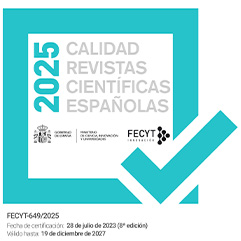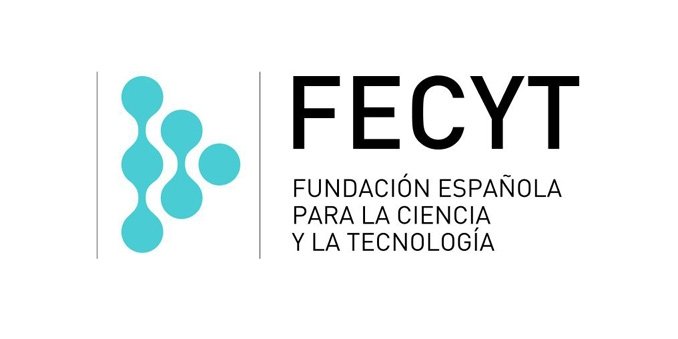Intención emprendedora social: Un análisis bibliométrico
DOI:
https://doi.org/10.17561/ree.n2.2024.8764Palabras clave:
intención emprendedora social, análisis bibliométrico, VOSviewer, modelos de intención emprendedora socialResumen
Recientemente se observa un aumento en el interés por el emprendimiento social como fenómeno que aborda la resolución de problemas sociales como un aspecto central dentro del mundo empresarial. En la academia también se ve reflejado este interés, a través del aumento significativo de investigaciones sobre Intención Emprendedora Social (IES).
Con el propósito de contribuir en la revisión de la producción científica sobre IES, el objetivo de este trabajo es realizar un análisis bibliométrico sobre esta temática, abarcando las publicaciones existentes hasta 2023 y realizando un análisis de rendimiento y de mapas científicos mediante el software VOSviewer.
La revisión realizada se basa en 377 artículos publicados en revistas indexadas en Web of Science y en Scopus. Los resultados confirman, por un lado, un interés creciente por el tópico en cuestión, fundamentalmente en revistas del área de las Ciencias Sociales. Por otro lado, este interés se muestra en multitud de países, siendo China, seguido de Estados Unidos los principales países en el ranking de contribuciones. Del análisis relacional se desprende la existencia de una red dispersa en autoría, salvo aquellas lideradas por los autores más prolíficos. Finalmente, el análisis de coocurrencia obtiene una red nodal con 6 clústeres, destacando el contexto educativo como recurrente, con la Teoría del Comportamiento Planificado y el Modelo de Mair y Noboa como enfoques prevalentes. Además, resaltan la importancia de variables personales en las personas emprendedoras y la relevancia de abordar preocupaciones sociales como la Covid-19 y la sostenibilidad.
Descargas
Referencias
Ajzen, I. (1991). The theory of planned behavior. Organizational behavior and human decision processes, 50(2), 179-211. https://doi.org/10.1016/0749-5978(91)90020-T
Appio, F. P., Martini, A., Massa, S., & Testa, S. (2016). Unveiling the intellectual origins of social media-based innovation: insights from a bibliometric approach. Scientometrics, 108, 355-388. https://doi.org/10.1007/s11192-016-1955-9
Araújo, C. A. (2006). Bibliometria: evolução histórica e questões atuais. Em questão, 12(1), 11-32. https://seer.ufrgs.br/index.php/EmQuestao/article/view/16
Asimakopoulos, G., Hernández, V., & Peña Miguel, J. (2019). Entrepreneurial intention of engineering students: The role of social norms and entrepreneurial self-efficacy. Sustainability, 11(16), 4314.https://doi.org/10.3390/su11164314
Austin, J., Stevenson, H., & Wei–Skillern, J. (2006). Social and commercial entrepreneurship: same, different, or both? Entrepreneurship theory and practice, 30(1), 1-22. https://doi.org/10.1111/j.1540-6520.2006.00107.x
Bacq, S., & Alt, E. (2018). Feeling capable and valued: A prosocial perspective on the link between empathy and social entrepreneurial intentions. Journal of Business Venturing, 33(3), 333-350. https://doi.org/10.1016/j.jbusvent.2018.01.004
Bikse, V., Rivza, B., & Riemere, I. (2015). The social entrepreneur as a promoter of social advancement. Procedia-Social and Behavioral Sciences, 185, 469-478. https://doi.org/10.1016/j.sbspro.2015.03.405
Bird, B. (1988). Implementing entrepreneurial ideas: The case for intention. Academy of management Review, 13(3), 442-453. https://doi.org/10.5465/amr.1988.4306970
Cadavid Higuita, L., Awad, G., & Franco Cardona, C. J. (2012). Análisis bibliométrico del campo modelado de difusión de innovaciones. Estudios gerenciales, 28(SPE), 213-236.
Codina, L. (2020). Cómo hacer revisiones bibliográficas tradicionales o sistemáticas utilizando bases de datos académicasoma de conducto auditivo externo: estudio de una serie de casos. Revista orl, 11(2), 139-153. https://doi.org/10.14201/orl.22977
Chien-Chi, C., Sun, B., Yang, H., Zheng, M., & Li, B. (2020). Emotional competence, entrepreneurial self-efficacy, and entrepreneurial intention: A study based on China college students’ social entrepreneurship project. Frontiers in psychology, 11, 547627. https://doi.org/10.3389/fpsyg.2020.547627
Dees, J. G. (2012). A tale of two cultures: Charity, problem solving, and the future of social entrepreneurship. Journal of business ethics, 111, 321-334. https://doi.org/10.1007/s10551-012-1412-5
Defourny, J., & Nyssens, M. (2010). Conceptions of social enterprise and social entrepreneurship in Europe and the United States: Convergences and divergences. Journal of social entrepreneurship, 1(1), 32-53. https://doi.org/10.1080/19420670903442053
Dickel, P., & Eckardt, G. (2021). Who wants to be a social entrepreneur? The role of gender and sustainability orientation. Journal of Small Business Management, 59(1), 196-218.https://doi.org/10.1080/00472778.2019.1704489
Donthu, N., Kumar, S., & Pattnaik, D. (2020). Forty-five years of Journal of Business Research: A bibliometric analysis. Journal of business research, 109, 1-14. https://doi.org/10.1016/j.jbusres.2019.10.039
Estrada-Lorenzo, J. M., Arroba, C. M. A., & López-López, C. (2023). Análisis bibliométrico de los artículos originales de la revista Enfermería Intensiva durante el período 2001-2020. Enfermería Intensiva, 34(2), 100-108. https://doi.org/10.1016/j.enfi.2022.02.003
Ferreira, F. A. (2018). Mapping the field of arts-based management: Bibliographic coupling and co-citation analyses. Journal of Business Research, 85, 348-357. https://doi.org/10.1016/j.jbusres.2017.03.026
Hueso, J. A., Jaén, I., & Liñán, F. (2021). From personal values to entrepreneurial intention: a systematic literature review. International Journal of Entrepreneurial Behavior & Research, 27(1), 205-230. https://doi.org/10.1108/IJEBR-06-2020-0383
Hockerts, K. (2017). Determinants of social entrepreneurial intentions. Entrepreneurship theory and practice, 41(1), 105-130. https://doi.org/10.1111/etap.12171
Hockerts, K. (2018). The effect of experiential social entrepreneurship education on intention formation in students. Journal of Social Entrepreneurship, 9(3), 234-256. https://doi.org/10.1080/19420676.2018.1498377
İrengün, O., & Arıkboğa, Ş. (2015). The effect of personality traits on social entrepreneurship intentions: A field research. Procedia-Social and Behavioral Sciences, 195, 1186-1195. https://doi.org/10.1016/j.sbspro.2015.06.172
Kautonen, T., Van Gelderen, M., & Tornikoski, E. T. (2013). Predicting entrepreneurial behaviour: a test of the theory of planned behaviour. Applied economics, 45(6), 697-707. https://doi.org/10.1080/00036846.2011.610750
Krueger Jr, N. F., Reilly, M. D., & Carsrud, A. L. (2000). Competing models of entrepreneurial intentions. Journal of business venturing, 15(5-6), 411-432. https://doi.org/10.1016/S0883-9026(98)00033-0
Kunttu, A., Puumalainen, K., & Fellnhofer, K. (2017). Socially-oriented entrepreneurial goals and intentions: the role of values and knowledge. Journal for International Business and Entrepreneurship Development, 10(4), 337-361. https://doi.org/10.1504/JIBED.2017.088711
León, A. M., Castellanos, O. F., & Vargas, F. A. (2006). Valoración, selección y pertinencia de herramientas de software utilizadas en vigilancia tecnológica. Ingeniería e investigación, 26(1), 92-102.
Li, J., Goerlandt, F., & Reniers, G. (2021). An overview of scientometric mapping for the safety science community: Methods, tools, and framework. Safety Science, 134, 105093. https://doi.org/10.1016/j.ssci.2020.105093
Liguori, E. W., Bendickson, J. S., & McDowell, W. C. (2018). Revisiting entrepreneurial intentions: a social cognitive career theory approach. International Entrepreneurship and Management Journal, 14, 67-78. https://doi.org/10.1007/s11365-017-0462-7
Liñán, F., & Chen, Y. W. (2009). Development and cross–cultural application of a specific instrument to measure entrepreneurial intentions. Entrepreneurship theory and practice, 33(3), 593-617.
Liñán, F., & Fayolle, A. (2015). A systematic literature review on entrepreneurial intentions: citation, thematic analyses, and research agenda. International entrepreneurship and management journal, 11, 907-933. https://doi.org/10.1007/s11365-015-0356-5
Liñán, F., & Santos, F. J. (2007). Does social capital affect entrepreneurial intentions? International Advances in Economic Research, 13, 443-453. https://doi.org/10.1007/s11294-007-9109-8
Loi, M., Castriotta, M., Barbosa, S. D., Di Guardo, M. C., & Fayolle, A. (2023). Entrepreneurial intention studies: A hybrid bibliometric method to identify new directions for theory and research. European Management Review. https://doi.org/10.1111/emre.12599
Mair, J., & Marti, I. (2006). Social entrepreneurship research: A source of explanation, prediction, and delight. Journal of World Business, 41(1), 36-44. https://doi.org/10.1016/j.jwb.2005.09.002
Mair, J., & Noboa, E. (2006). Social entrepreneurship: How intentions to create a social venture are formed. In Social entrepreneurship (pp. 121-135). London: Palgrave Macmillan UK.
Meoli, A., Fini, R., Sobrero, M., & Wiklund, J. (2020). How entrepreneurial intentions influence entrepreneurial career choices: The moderating influence of social context. Journal of Business Venturing, 35(3), 105982. https://doi.org/10.1016/j.jbusvent.2019.105982
Peredo, A. M., & McLean, M. (2006). Social entrepreneurship: A critical review of the concept. Journal of World Business, 41(1), 56-65.https://doi.org/10.1016/j.jwb.2005.10.007
Rueda, G., Gerdsri, P., & Kocaoglu, D. F. (2007). Bibliometrics and social network analysis of the nanotechnology field. In PICMET’07-2007 Portland international conference on management of engineering & technology (pp. 2905-2911). IEEE. https://doi.org/10.1109/PICMET.2007.4349633
Ruiz-Alba, J. L., Guzman-Parra, V. F., Vila Oblitas, J. R., & Morales Mediano, J. (2021). Entrepreneurial intentions: a bibliometric analysis. Journal of Small Business and Enterprise Development, 28(1), 121-133. https://doi.org/10.1108/JSBED-07-2019-0221
Ruiz-Rosa, I., Gutiérrez-Taño, D., & García-Rodríguez, F. J. (2020). Social entrepreneurial intention and the impact of COVID-19 pandemic: A structural model. Sustainability, 12(17), 6970.https://doi.org/10.3390/su12176970
Saebi, T., Foss, N. J., & Linder, S. (2019). Social entrepreneurship research: Past achievements and future promises. Journal of management, 45(1), 70-95. https://doi.org/10.1177/0149206318793196
Salamzadeh, A., Azimi, M. A., & Kirby, D. A. (2013). Social entrepreneurship education in higher education: insights from a developing country. International Journal of Entrepreneurship and Small Business, 20(1), 17-34. https://doi.org/10.1504/IJESB.2013.055691
Santos, F. M. (2012). A positive theory of social entrepreneurship. Journal of business ethics, 111(3), 335-351.https://doi.org/10.1007/s10551-012-1413-4
Shapero, A., & Sokol, L. (1982). The social dimensions of entrepreneurship. University of Illinois at Urbana-Champaign’s Academy for Entrepreneurial Leadership Historical Research Reference in Entrepreneurship.
Tajpour, M., & Hosseini, E. (2021). Entrepreneurial intention and the performance of digital startups: The mediating role of social media. Journal of Content, Community & Communication, 13(1), 2-15. https://doi.org/10.31620/JCCC.06.21/02
Tan, L. P., Le, A. N. H., & Xuan, L. P. (2020). A systematic literature review on social entrepreneurial intention. Journal of Social Entrepreneurship, 11(3), 241-256. https://doi.org/10.1080/19420676.2019.1640770
Tran, A. T., & Korflesch, H. V. (2017). Factors influencing social entrepreneurial intention: A theoretical model. International Journal of Management and Applied Science, 3(12), 38-44.
Tran, A. T., & Von Korflesch, H. (2016). A conceptual model of social entrepreneurial intention based on the social cognitive career theory. Asia Pacific Journal of Innovation and Entrepreneurship, 10(1), 17-38. https://doi.org/10.1108/APJIE-12-2016-007
Turan, M., & Kara, A. (2018). Online social media usage behavior of entrepreneurs in an emerging market: Reasons, expected benefits and intentions. Journal of Research in Marketing and Entrepreneurship, 20(2), 273-291. https://doi.org/10.1108/JRME-09-2016-0034
Vallaster, C., Kraus, S., Lindahl, J. M. M., & Nielsen, A. (2019). Ethics and entrepreneurship: A bibliometric study and literature review. Journal of Business Research, 99, 226-237.https://doi.org/10.1016/j.jbusres.2019.02.050
Van Eck, N., & Waltman, L. (2010). Software survey: VOSviewer, a computer program for bibliometric mapping. Scientometrics, 84(2), 523-538.https://doi.org/10.1007/s11192-009-0146-3
Waltman, L., Van Eck, N. J., & Noyons, E. C. (2010). A unified approach to mapping and clustering of bibliometric networks. Journal of informetrics, 4(4), 629-635. https://doi.org/10.1016/j.joi.2010.07.002
Wang, W., Cao, Q., Zhuo, C., Mou, Y., Pu, Z., & Zhou, Y. (2021). COVID-19 to green entrepreneurial intention: Role of green entrepreneurial self-efficacy, optimism, ecological values, social responsibility, and green entrepreneurial motivation. Frontiers in Psychology, 12, 732904. https://doi.org/10.3389/fpsyg.2021.732904
Yunus, M. (2011). Las empresas sociales: una nueva dimensión del capitalismo para atender las necesidades más acuciantes de la humanidad. Grupo Planeta Spain.
Zhu, J., & Liu, W. (2020). A tale of two databases: The use of Web of Science and Scopus in academic papers. Scientometrics, 123(1), 321-335. https://doi.org/10.1007/s11192-020-03387-8
Publicado
Número
Sección
Licencia
Derechos de autor 2024 Edurne Zubiria-Ferriols, Maria Teresa Martínez Fernández, Mercedes Segarra Ciprés

Esta obra está bajo una licencia internacional Creative Commons Atribución 4.0.
- Los autores/as conservarán sus derechos de autor y garantizarán a la revista el derecho de primera publicación de su obra, el cuál estará simultáneamente sujeto a la Licencia de reconocimiento de Creative Commons que permite a terceros compartir la obra siempre que se indique su autor y su primera publicación esta revista.
- Los autores/as podrán adoptar otros acuerdos de licencia no exclusiva de distribución de la versión de la obra publicada (p. ej.: depositarla en un archivo telemático institucional o publicarla en un volumen monográfico) siempre que se indique la publicación inicial en esta revista.
- Se permite y recomienda a los autores/as difundir su obra a través de Internet (p. ej.: en archivos telemáticos institucionales o en su página web) antes y durante el proceso de envío, lo cual puede producir intercambios interesantes y aumentar las citas de la obra publicada. (Véase El efecto del acceso abierto).
La Revista de Estudios Empresariales. Segunda Época, utiliza PKP Preservation Network (PN).




























